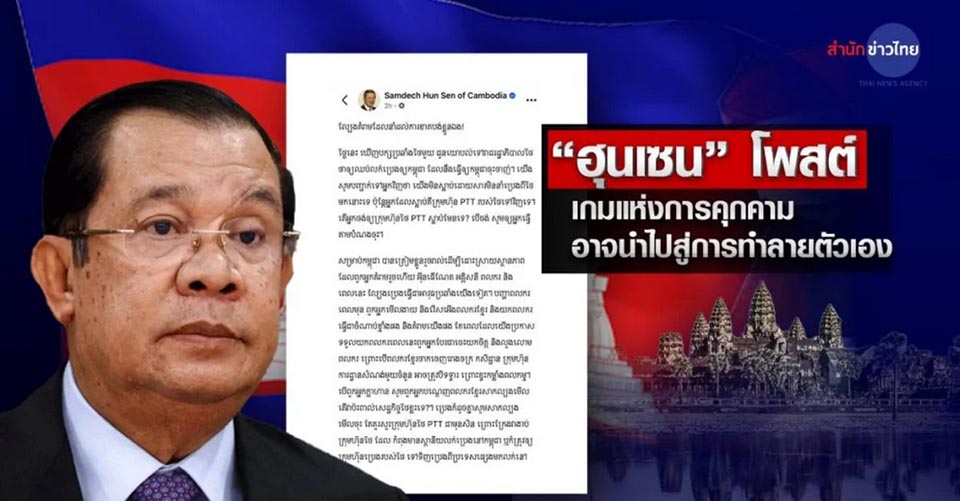
PHNOM PENH – In a late-night Facebook post around 10:30 p.m. on Friday, former Cambodian Prime Minister Hun Sen fired back at a Thai opposition proposal to halt oil exports to Cambodia, calling it a self-destructive move that could end up hurting Thai companies more than Cambodia.
“The game of intimidation could lead to your own downfall,” Hun Sen wrote. “Today, the Thai opposition is urging its government to stop selling oil to Cambodia as a form of pressure. But we assure you, Cambodia will not collapse just because we no longer buy oil from Thailand. On the contrary, it could be Thailand’s own PTT company that takes the hit.”
“Do you want PTT to collapse? If that’s your goal, then go ahead. Cambodia is ready to handle your threats – be it internet, electricity, labor, and now oil.”
Hun Sen went on to accuse Thailand of previously exploiting Cambodian workers as bargaining chips. “You used to discriminate and insult our workers, but when we announced we would bring them home, you changed your tone and started treating them nicely. Why? Because if Cambodian workers leave your factories, farms, companies, and construction sites, many of your businesses will have to shut down.”
“Try it if you dare. Fire all Cambodian workers and see how it impacts the Thai economy.”
Regarding oil, Hun Sen warned that if Thailand cuts off supply, it may destroy its own energy business. “Don’t forget to consult with PTT first – especially since they operate gas stations in Cambodia and would need to find oil from elsewhere to continue operating.”
As leader of the Cambodian People’s Party, Hun Sen urged the Cambodian government and business sector to begin reducing dependence on Thai products. “If the border issues remain unresolved, Cambodia should suspend all imports of Thai canned goods – alcohol, energy drinks, canned fish, and meats – and switch to domestic or alternative international sources.”
“Cambodians must think beyond our borders and look toward the future after 2030,” he concluded. (TNA)










